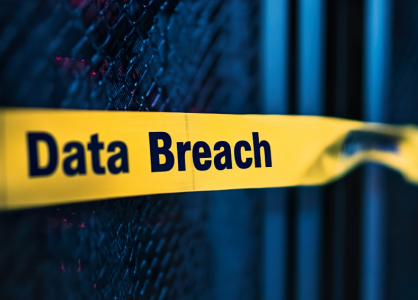In an era where cyber threats are escalating at an unprecedented rate, cybersecurity governance has become a fundamental pillar of corporate accountability. Businesses are increasingly recognizing that cybersecurity is not just an IT issue—it is a governance and risk management priority that can make or break an organization. With cyberattacks costing businesses an average of $4.35 million per breach, companies must implement robust cybersecurity frameworks to mitigate risks and ensure compliance.
The Rising Importance of Cybersecurity in Governance
As cyber threats evolve, businesses must adopt a governance-first approach to cybersecurity. Effective cybersecurity governance ensures that organizations proactively address vulnerabilities, establish risk mitigation strategies, and implement best practices for protecting sensitive data.
Corporate boards and executives are now being held accountable for cybersecurity failures. Regulatory bodies worldwide have introduced stricter compliance requirements, compelling companies to adopt standardized security frameworks and report breaches promptly.
For companies seeking a structured approach to cybersecurity governance, the National Institute of Standards and Technology (NIST) provides a comprehensive cybersecurity framework that outlines best practices for managing cyber risks effectively.
The Cost of Cyberattacks: A Business Imperative
A single data breach can have devastating consequences, including:
🔴 Financial Losses – The average cost of a cyberattack is $4.35 million, with some breaches exceeding $10 million, according to IBM’s Cost of a Data Breach Report.
🔴 Reputational Damage – Customers lose trust in businesses that fail to protect their data, leading to lost revenue and brand erosion.
🔴 Regulatory Penalties – Non-compliance with cybersecurity regulations can result in hefty fines and legal consequences, particularly under GDPR and other data protection laws.
🔴 Operational Disruptions – Ransomware attacks and system breaches can cripple operations, halting business continuity.
To prevent such risks, businesses must adopt robust cybersecurity governance strategies, ensuring corporate-wide security accountability. Microsoft’s cybersecurity governance strategies provide valuable insights into how companies can integrate security into their risk management frameworks.
Key Cybersecurity Governance Best Practices
🔹 Establish a Cybersecurity Governance Framework – Align security policies with recognized standards like NIST, ISO 27001, or CIS Controls to ensure structured risk management.
🔹 Board-Level Oversight – Cybersecurity must be a boardroom discussion, with executives taking an active role in risk management.
🔹 Regular Risk Assessments – Organizations should frequently assess vulnerabilities using the latest methodologies, such as those outlined by the European Union Agency for Cybersecurity (ENISA).
🔹 Employee Training & Awareness – Human error remains one of the leading causes of cyber breaches. Ongoing training ensures employees recognize phishing attempts and security risks.
🔹 Incident Response Planning – Companies must develop and routinely test incident response plans to minimize damage in case of a breach.
🔹 Third-Party Security Audits – Conducting external security assessments ensures that organizations identify and address weaknesses proactively.
MPG’s Role in Strengthening Cybersecurity Governance
MPG (My Premium Governance) provides comprehensive governance frameworks that help organizations implement best practices for cybersecurity compliance. By integrating cybersecurity into corporate governance structures, MPG ensures that businesses:
✅ Stay compliant with evolving security regulations.
✅ Develop risk management strategies that align with industry best practices.
✅ Create robust cybersecurity policies to protect sensitive data.
✅ Enhance accountability at the executive level to drive a security-first culture.
Looking Ahead: A Secure Future for Businesses
As cyber threats grow more sophisticated, companies must prioritize cybersecurity governance to safeguard their operations, finances, and reputation. Businesses that adopt proactive security frameworks and integrate governance principles into their cybersecurity strategy will thrive in an increasingly digital world.
🔐 The future of cybersecurity is not just about technology—it’s about governance, compliance, and corporate accountability. By embracing cybersecurity governance best practices, businesses can stay ahead of threats and build resilience against cyberattacks.
References:
- NIST Cybersecurity Framework
- Microsoft’s Cybersecurity Governance Strategies
- European Union Agency for Cybersecurity (ENISA) Risk Assessments
As businesses navigate the digital landscape, MPG continues to be a trusted partner, ensuring that cybersecurity governance is not just an afterthought but a core business priority. The time to act is now! 🚀

